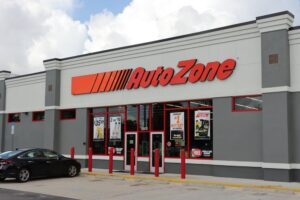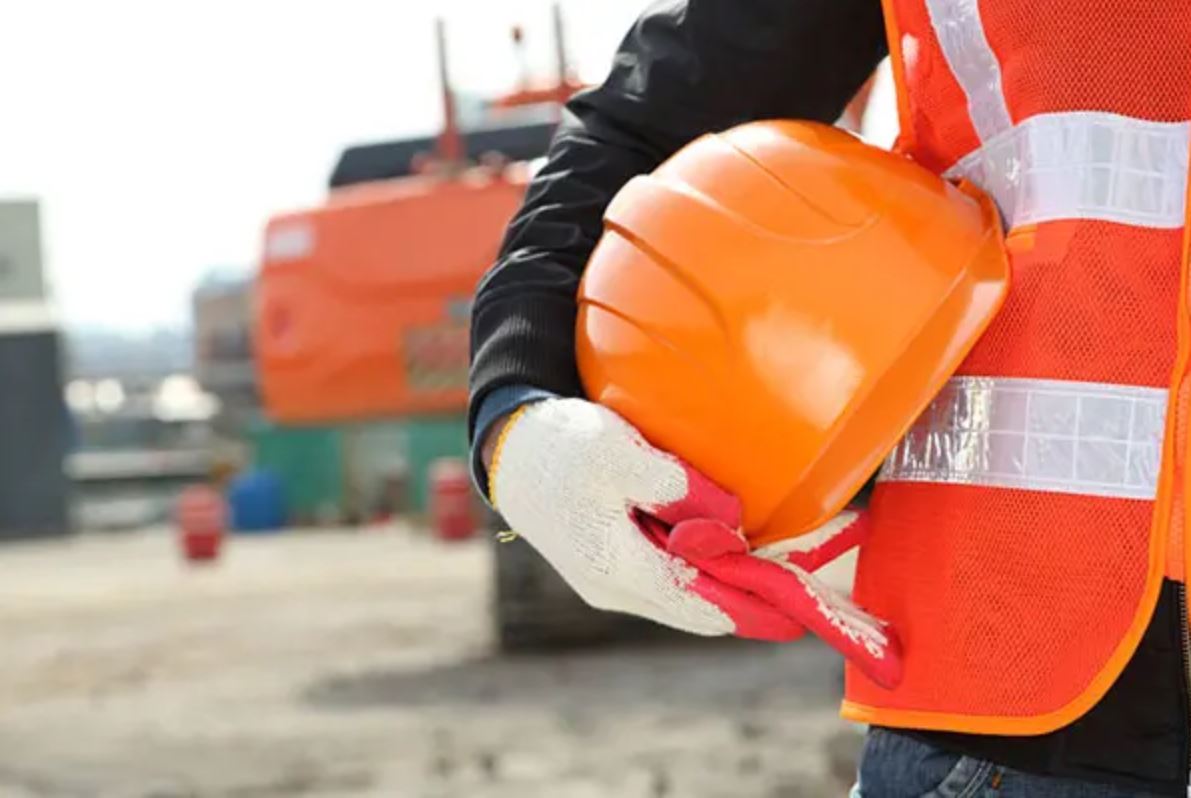Posted & Reviewed by C.J. Baker - Jun 03rd 2025
Sustaining an injury while performing duties at an AutoZone facility can present serious challenges, particularly when the employer does not carry traditional workers’ compensation insurance. AutoZone Workers Compensation Claims in Texas require a different legal approach, as AutoZone operates as a non-subscriber to the state’s workers’ compensation system. In these cases, pursuing compensation often means building a negligence-based personal injury claim. Navigating this type of legal matter demands clarity, preparation, and experienced representation. At Armstrong Lee & Baker LLP, we stand with injured workers across Texas, ensuring their rights are upheld and that every path to recovery is pursued with diligence.
We’ll fight for the compensation you deserve.


Instead, a personal injury claim must be pursued against AutoZone to recover damages. These claims depend on proving that the company acted negligently in maintaining workplace safety or supervision.
Negligence might involve failure to train properly, ignoring hazardous conditions, or violating known safety standards. Each of these actions can form the basis of liability when supported by documentation and testimony.
Proving such negligence requires detailed evidence, such as safety reports, witness accounts, and expert evaluations. Legal knowledge and case preparation are essential to establishing a compelling argument.
Unlike traditional workers’ compensation, a non-subscriber case may allow recovery for pain and suffering, medical expenses, and loss of future income. Careful case development from the beginning improves the likelihood of a successful outcome.
Unlike traditional claims, where fault is not a factor, non-subscriber claims depend entirely on proving employer negligence. Negligence may include unsafe work environments, lack of training, or failure to maintain equipment. If AutoZone failed to meet basic safety standards or violated OSHA protocols, it can be held liable for damages. We work closely with investigators and expert witnesses to pinpoint how and where AutoZone failed in its responsibilities.
Proving negligence involves four legal elements: duty, breach, causation, and damages. An employer such as AutoZone holds a duty to maintain a safe working environment for staff. Breaching that duty through unsafe practices or ignored hazards can result in liability when an employee is harmed. Establishing a direct link between that breach and the injury sustained is critical to a successful claim.
Collapsed shelving that has not been maintained properly can serve as compelling evidence of negligence. Incidents like these show a failure in safety protocol and can fulfill the causation requirement under Texas law. Supporting documentation, such as safety inspection records, video surveillance, and internal communications, often plays a pivotal role.
Witness testimony can also add credibility to the account of events. The combination of physical evidence and corroborating statements can create a persuasive narrative. Thorough legal preparation ensures these materials are positioned effectively during litigation or negotiation.
Because AutoZone operates as a non-subscriber under Texas law, injured employees may have greater legal flexibility in seeking compensation. Compensation may include pain and suffering, emotional distress, lost wages, medical expenses, and diminished earning capacity. These types of damages are often not recoverable under standard workers’ compensation programs, making non-subscriber claims potentially more comprehensive.
The Texas Division of Workers’ Compensation outlines that non-subscriber employers are required to notify the state annually and must report certain injury events, particularly when an employee misses more than one day of work. Non-subscribers also lack the legal shield of contributory negligence defenses in most scenarios.
This distinction can significantly impact the outcome of a claim. For instance, an employer typically cannot argue that the employee’s own actions caused the injury to avoid liability. As a result, the legal strategy focuses heavily on documenting employer responsibility, workplace hazards, and any history of similar incidents.
Success in a non-subscriber claim hinges on developing a comprehensive legal strategy. The process begins with a detailed evaluation of the incident to determine whether it falls within the scope of Texas personal injury law. Every case is unique and demands tailored attention based on the facts and available evidence.
From there, we gather medical records, workplace surveillance footage, inspection reports, and internal employment documents. Each element contributes to building a well-supported timeline and uncovering any failures in workplace safety.
The timeline allows us to align the sequence of events with employer obligations and responsibilities. Identifying gaps in procedures, inadequate responses to known hazards, or missing documentation strengthens the claim.
Clear communication, thorough preparation, and rapid response to developing case issues are all vital components. A proactive approach often influences outcomes favorably, particularly when the employer’s legal defense team acts quickly. The ability to stay agile can make the difference in maximizing the injured party’s recovery.
In some situations, a claim stemming from a work-related injury at AutoZone may not be limited to the employer alone. When a third-party contractor or a defective product plays a role in the incident, separate legal actions may be necessary. These third-party claims provide an additional path to secure compensation, especially when the external party contributed to hazardous conditions.
The process begins with filing a personal injury lawsuit in the appropriate Texas civil court. This initiates formal litigation procedures such as discovery, where both sides exchange documents, and depositions, which allow sworn statements to be collected.
Every stage is designed to build a thorough case file. Identifying which parties hold responsibility is critical, and our legal team works to ensure no potential contributor to the injury is overlooked. Strategic planning and procedural precision guide each decision throughout the case to pursue the fullest recovery available under Texas law.
Texas law establishes that liability does not depend on proving employer intent. Under Section 406.031 of the Texas Labor Code, an employer is liable if the injury occurs within the course and scope of employment. This makes workplace injury claims fundamentally different from general tort cases. When evaluating your case, we assess your duties, the nature of the incident, and whether AutoZone had prior notice of a hazard.
AutoZone workers’ compensation claims in Texas often demand the use of multi-pronged legal strategies. Developing a strong case may involve combining claims of negligence, inadequate supervision, improper training, and unsafe working conditions. Each element presents a distinct angle of liability that can strengthen the overall position.
Reviewing patterns in previous incident reports, OSHA violations, or internal safety audits helps establish whether systemic issues contributed to the injury. These recurring problems, if present, reveal a broader failure in duty of care and support a comprehensive claim.
By integrating several legal theories, negotiating leverage increases significantly. This approach allows for a more complete portrayal of employer fault and encourages fairer settlement outcomes.
Legal strategies are not one-size-fits-all. Case specifics determine how these claims are combined and applied. Adjusting the approach based on facts and available evidence enables a more precise and effective response tailored to the circumstances of each injury.
Without access to traditional workers’ compensation benefits, AutoZone employees must turn to legal channels to secure wage replacement. This can include lost income, reduced future earning capacity, and out-of-pocket medical expenses. These damages reflect the financial hardship that results from a serious workplace injury and aim to restore stability.
Legal claims also open the door to recovering additional economic losses tied to missed career advancement opportunities or necessary job retraining. Each case is fact-specific, requiring detailed financial analysis to document the full impact of the injury.
In certain instances, supplemental benefits may be accessible, such as short-term disability insurance or group health coverage, depending on the employer’s voluntary offerings. Identifying all viable sources of relief is key.
Accurately calculating these losses is essential to ensure fair compensation. Our team reviews employment records, medical statements, and projected earnings to develop a complete and well-supported financial claim.
Filing a claim against a non-subscriber like AutoZone can be overwhelming. You need legal guidance that understands Texas labor law and recognizes how large retailers operate internally. At Armstrong Lee & Baker LLP, we take the time to learn your story, investigate thoroughly, and hold employers accountable. Contact us today to speak with a Houston-based attorney about your AutoZone work injury claim. We’re ready to fight for your recovery, and we don’t get paid unless you win.
C.J. Baker represents victims with serious injuries and he won’t let any corporation or insurance company stop his clients from getting complete justice. He has won millions of dollars for victims of 18-wheeler crashes, oilfield equipment failures, offshore platform explosions, and defective medical devices. Our lawyers have 25+ years of combined experience.


This page has been written, edited, and reviewed by a team of lawyers following our comprehensive editorial guidelines. Our lawyers have more than 20 years of legal experience as personal injury attorneys.

Texas is one of the few states in the nation that does not require employers to provide workers’ compensation insurance to employees. However, if an employer subscrib...
Posted by Scott Armstrong

While every job presents its fair share of risks to employees, few occupations are as dangerous as warehouse jobs. Warehouse injuries are extremely common. Ac...
Posted by Scott Armstrong

What Is a Non-Subscriber Employer? A non-subscriber employer is a business that decides not to carry traditional workers' compensation insurance. Instead, they create ...
Posted by Scott Armstrong
Trusted Personal Injury Attorneys in Houston
Schedule your free consultation with a top-rated Houston personal injury lawyer today